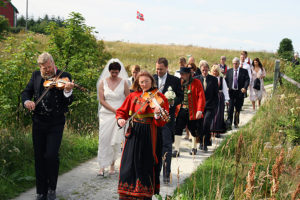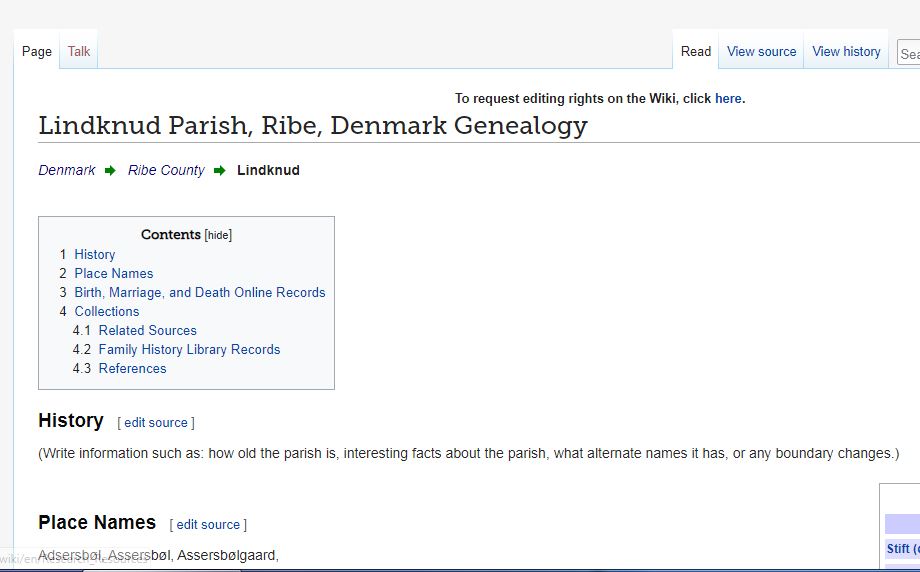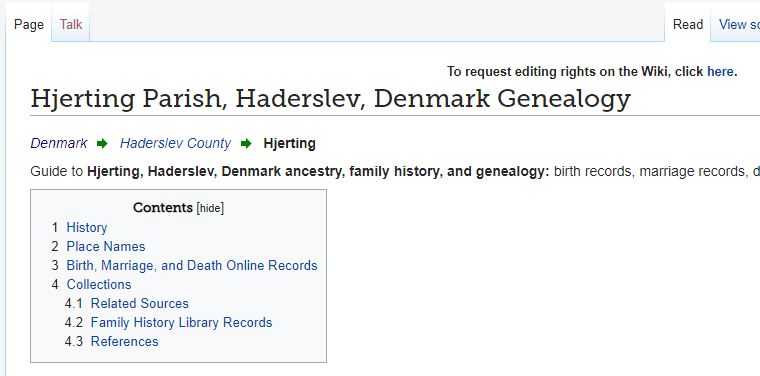Danish Marriage Records-A Case Study

Hi everyone! When fall hits, I feel like I need to go back to school, too! I have this desire to learn so I have this habit of signing up for webinars and online classes that help me in several areas of my life. How about you?
Let’s show an example of all of the Danish stuff that I’ve been throwing at you lately. Let’s put it into a case study so you can see how to use this information.
I’m going to start by finding a Danish marriage record and seeing what it can tell me. Then I’ll show you the path I would take next after analyzing the record.
Finding a Danish Marriage Record
If I wanted to find a Danish marriage record, then I would first get my ancestor’s town of origin. I could find that in any American record that I have in my possession. For example immigration records, military records, American marriage records of other family members, etc.
I would then go to the Family Search Wiki to look up that town to find the county and parish and any other information that I could find on that town. For this example, let’s say my ancestor lived in Lindknud Parish on Vittrup farm. The family search wiki page would look like this.

What Does the Marriage Record Say?
Next, I would go to the Danish National Archives to look up the original records for that ancestor. This is what I would find.


Translation: Bachelor Knud Larsen, Son of Peder Larsen (Jensen), Hjerting, Hadersleve County, Born May 1860, Bride: Woman Severine Andersen, Daughter of Anders Pedersen in Vitterup, born 23 August 1852, Witnesses: Niels P Larsen, Hjerting, A. Pedersen, Vitterup, Marriage Date: 3 November 1880, Where the marriage was performed: Lindknud Church
I would then use Family Search Wiki to discover where the bridegroom and bride were born. The record lists their fathers names and their residence. This is what I found for the bridegroom. The bride’s residence is the same as the family search wiki image above.

Where does the Marriage Record Lead Next?
This is what we know from this record. The bridegroom was from Haderslev County, Hjerting Parish and his father is Peder Larsen. He was born in May 1860. The bride was from Vittrup farm, Lindknud Parish, Ribe County and her father is Anders Pedersen. She was born 23 August 1852.
Knowing this information, I would find their birth records next. I already have half of the information I need to find the record. I have their birth dates, names, father’s name, and residence. I go for the easier records first. Then if I haven’t found any other record for this couple, I could go many different directions. I could find the couple’s siblings, I could find their children starting in 1880, I could find the census records for this couple, etc.
That’s it! Nothing to it, right?! Don’t worry if you didn’t catch all of that process. Just take your time and go step by step without rush. It’s worth it! Next week I will show you another example from a client of mine and how it stumped me for a bit.
Good luck and happy hunting!
Tiffany
P.S. Stay tuned for some online courses that are coming soon! In the meantime, don’t forget to sign up for my Wednesday Wisdom email. New subscribers receive a free download of all of the American and Scandinavian websites that I use in my business.
danish birth records, danish marriage records, Danish National Archives, familysearch.org/wiki




